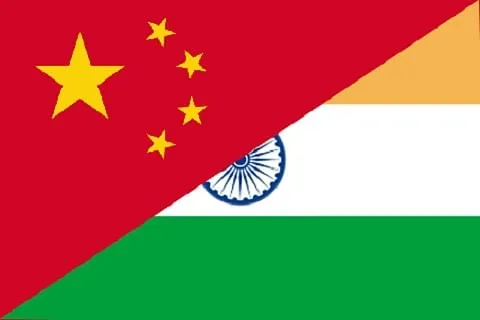The other day I went to a well-known company to buy a laptop. There was a bee line, and visible shortage of products, because of the changes in our import policy. Boycotting of products from China at this stage abruptly, keeping in mind their industrial boom, needs to be calibrated and toned down. We may need to learn right lessons from them in the areas of modern technology. I have had a good experience of more than two decades, watching them develop closely step by step.
My first visit was in 1994 when we had an epidemic of bubonic plague. On reaching Beijing I was sent to the health authorities for a quarantine but I returned back by the earliest flight. I again went in 1996 for a meeting. The road from the airport to the hotel was a dusty track bereft of any vegetation. The airport itself was in a small building, much more primitive in terms of appearance and the facilities, than the New Delhi terminus of those days. City was full of cyclists and pavement vendors. These vendors adept at bargaining, were selling small trinkets and accepted only US dollars. Besides giving my lecture during the visit, I also saw the Beijing end of the “Great Wall “and the remarkable historic “Forbidden City”. My next visit was a University invitation in 1998, where I saw their public hospitals which reminded me of our own hospitals. I did a few heart procedures and being the first ones in Beijing these were reported in newspapers there.
My first visit to Shanghai, the densely populated commercial and banking hub of China with a dazzlingly huge Pudong airport was in 2006. Besides seeing the large malls and the bund, it was amazing to see a large vacant area being transformed into a lush green park with groomed flowers and trees by transplantation in just 2 days. Such miracles and building sky scrapers in a few weeks’ time is an everyday affair there. This to me was a complete transformation of technology in a span of just 8 years.
The next visit of mine was in March 2009, seven months after the Beijing Olympics and the venue was the same village. Our stay was in a very spacious hotel just in front of the amazing Bird’s nest stadium and the soothingly blue “Aquatic water cube stadium”. Driving towards the city I could see traffic jams with most modern vehicles, but no bicycles this time.
The other conference cities I visited during these years were Shenzhen close to Hong Kong and Suzhou, a city near Shanghai. Both very artistically done up places and a shopper’s paradise. In the Suzhou hotel, robots used to respond to the house keeping calls very promptly giving a feeling of fantasy land.
During my several visits the alleviation of poverty in that country was palpably visible. As per the data, it has fallen from 88 percent in 1981 to 0.7 percent in 2015. My last visit to Beijing was in March 2019. Their hospitals and health care systems have achieved an excellence in delivering both modern and traditional medicine. Their skills of minimally invasive procedures and short hospital stays are remarkable. This is totally in contrast to the scene 20 years ago, when I felt we in India were far superior in all these areas. Their medical research is of a high quality reported in high impact international journals. Even after the COVID 19, which spread from Wuhan, their current progress in making the vaccine and executing large scale trials is remarkable.
My experience of China has been very striking. It being a country comparable to India in terms of population and natural resources, although much larger in area, but with different ideologies and systems. Their huge economy is not dependent on a few countries only. India contributes only 3 percent to their exports and they have big investments in almost all the countries of the world. Seeing our dependence on their technologies in several sectors we cannot afford to stop it overnight. We need to emulate their positives and look for alternative sources and develop our own capabilities which is going to take time. It is premature to make public statements regarding boycotting their products. Their expansionist agenda which is deplorable cannot be curbed by these measures. Their spending a huge budget on weaponry, missiles and nuclear arsenal is well known. It therefore needs a different approach keeping in mind our different political systems and our past experiences of dealing with them on the border disputes.
Author, a Cardiologist, is a recipient of Padmashiri and Dr B C Roy Award.






